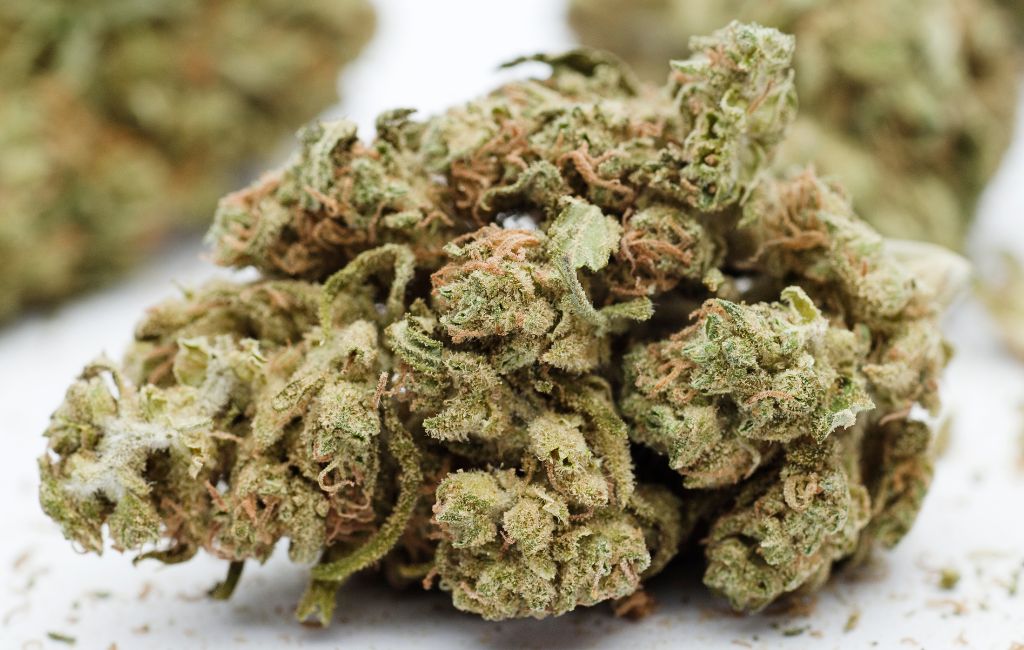The world of cannabis is vast and varied, with numerous strains offering unique benefits and experiences. One such strain that has garnered attention is Blue Hawaiian Haze, particularly for its THCa content. This article delves into the Blue Hawaiian Haze THCa uses, providing insights into its potential benefits and applications.
Understanding THCa
THCa, or tetrahydrocannabinolic acid, is a non-psychoactive cannabinoid found in raw cannabis. Unlike THC, THCa does not produce a high when consumed. Instead, it offers a range of potential therapeutic benefits. As cannabis research progresses, the interest in THCa and its properties continues to grow.
What is Blue Hawaiian Haze?
Blue Hawaiian Haze is a hybrid cannabis strain known for its balanced effects and tropical flavor profile. It combines the genetics of Blueberry and Hawaiian strains, resulting in a unique blend that appeals to both recreational and medicinal users. The strain is particularly noted for its high THCa content, making it a subject of interest for those exploring non-psychoactive cannabis options.
Characteristics of Blue Hawaiian Haze
- Aroma: Sweet and fruity with hints of tropical fruits and berries.
- Flavor: A blend of sweet berries and earthy undertones.
- Appearance: Dense buds with a mix of blue and green hues, often covered in a frosty layer of trichomes.
Potential Benefits of THCa
Research into THCa is still in its early stages, but preliminary findings suggest several potential benefits:
- Anti-inflammatory Properties: THCa may help reduce inflammation, making it a potential option for those with conditions like arthritis.
- Neuroprotective Effects: Some studies indicate that THCa could offer neuroprotective benefits, which might be beneficial for neurodegenerative diseases.
- Anti-emetic Properties: THCa has shown promise in reducing nausea and vomiting, which could be helpful for patients undergoing chemotherapy.
- Appetite Stimulation: Like THC, THCa may help stimulate appetite, offering potential benefits for those with eating disorders or undergoing treatments that affect appetite.
Case Studies and Research
While comprehensive clinical trials are limited, several case studies and anecdotal reports highlight the potential of THCa:
A study published in the British Journal of Pharmacology explored the anti-inflammatory effects of THCa, suggesting its potential in treating inflammatory conditions. Another research article in the Journal of Neuroimmune Pharmacology discussed the neuroprotective properties of THCa, indicating its promise in managing neurodegenerative diseases.
Patients with chronic pain have reported relief after using THCa-rich strains like Blue Hawaiian Haze. These anecdotal accounts, while not scientifically rigorous, provide valuable insights into the potential applications of THCa.
Consumption Methods
There are various ways to consume Blue Hawaiian Haze to benefit from its THCa content:
- Raw Consumption: Consuming raw cannabis leaves or flowers preserves the THCa content, offering non-psychoactive benefits.
- Juicing: Juicing raw cannabis is a popular method to intake THCa, often combined with other fruits and vegetables for a nutritious drink.
- Tinctures: THCa tinctures provide a convenient way to consume the cannabinoid, allowing for precise dosing.
- Topicals: THCa-infused topicals can be applied directly to the skin, potentially offering localized relief from pain and inflammation.
Legal Considerations
The legal status of THCa varies by region. In some areas, THCa is considered legal due to its non-psychoactive nature, while in others, it falls under the same regulations as THC. It’s crucial for consumers to be aware of the legal framework in their area before purchasing or consuming THCa products.
Conclusion
Blue Hawaiian Haze, with its high THCa content, presents an intriguing option for those seeking the therapeutic benefits of cannabis without the psychoactive effects. While research is still developing, the potential anti-inflammatory, neuroprotective, and anti-emetic properties of THCa make it a promising area of study. As the legal landscape evolves and more research emerges, Blue Hawaiian Haze and its THCa content may become increasingly significant in the world of cannabis therapeutics.
